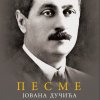Stevan Mandarich, 90, a retired Navy rear admiral and decorated combat veteran of World War II who lived in Washington until the early 1980s, died Dec. 6 in Niagara Falls, Ontario, in a retirement home where he was being treated for Alzheimer's disease.
Adm. Mandarich, who was born in Arizona and raised in California, was a 1933 graduate of the U.S. Naval Academy at Annapolis. In the early days of World War II, he flew from the carrier Wasp in the Atlantic. Later in the war, he flew a Hellcat in the battle for Tarawa and commanded an air group on the carrier Lexington. Along the way, he received the Distinguished Flying Cross and three awards of the Air Medal.
Source: HighBeam Research




